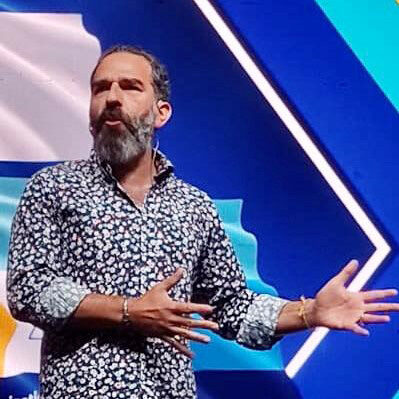Teens across Israel and in Jewish communities throughout America participate in transformative encounters that shape their Jewish identity, their relationship with peoplehood, their relationship with Israel and their overall worldview. Yet despite the profound impact these cross-cultural meetings can have, a significant asymmetry exists in how these young people are prepared for their encounters with each other.
The current landscape – a significant asymmetry
Agencies and youth movements in the field of immersive Israel experiences for teens provide mandatory training workshops for Israeli teens before they engage with American participants. These programs recognize that Israeli teens, coming from a society where Jewish identity is often taken for granted as the cultural norm, need preparation to understand and relate to American Jewish experiences of Diaspora life, minority status and voluntary Jewish engagement.
Meanwhile, these same agencies, while offering excellent leadership development and Israel education, typically provide minimal cultural preparation for American participants that is specifically focused on understanding Israeli teen perspectives and experiences. As a result, the American teens often come to the interaction, whether it is in Israel or the U.S., with general knowledge about the country but limited understanding of the lived experiences of their Israeli peers.
This preparation gap is problematic, but recent events have made it critically urgent.
The current state of war has fundamentally altered the reality for Israeli teenagers. Many are dealing with trauma, loss and the psychological impacts of living under constant threat. Some have lost family members, friends or neighbors. Others have experienced displacement, witnessed violence or lived through extended periods in bomb shelters. The normalcy of their teenage years has been shattered by circumstances beyond their control.
Post-traumatic stress disorder and other mental health challenges are prevalent among Israeli youth. They carry not only their own trauma but often the intergenerational trauma of their families and communities. When these teens enter programs with American Jewish peers, they bring this weight with them — yet their American counterparts often lack the cultural preparation to recognize, understand or appropriately respond to these experiences. American participants and even staff, while deeply caring and often eager to support their Israeli peers, may inadvertently cause harm through well-intentioned but culturally insensitive comments or approaches to teen engagement. They might not understand why certain topics are particularly sensitive; why an Israeli teen might react strongly to seemingly innocent discussions about politics or security; or how to create space for their Israeli peers to process their experiences without judgment.
There is also the fundamental challenge of cultural interpretation that affects every interaction between Israeli and American Jewish teens. Even simple conversation between peers is actually a complex cross-cultural encounter where the same words, gestures and concepts can carry vastly different meanings.
Israeli teens often communicate with a directness that can be jarring to American teens accustomed to more indirect communication styles. What an Israeli teen intends as honest, straightforward communication might be perceived by an American teen as rude or aggressive. Conversely, what an American teen intends as polite consideration might be interpreted by an Israeli teen as insincerity or avoidance.
These cultural misinterpretations become particularly problematic when discussing sensitive topics. The Hebrew concept of “dugri” (straight talk) is a valued communication style in Israel, but when applied to topics like politics, security or identity, it can overwhelm American teens who are accustomed to more circumspect approaches to controversial subjects.
Even seemingly neutral topics carry different cultural weight. When an Israeli teen talks about military or national service, for instance, they’re discussing what might be, in their sector of Israeli society, a universal experience that shapes their entire peer group. When an American teen discusses college choices, they’re describing a freedom that many Israeli teens can barely imagine at the age of mandatory military service. These different realities can create unintended feelings of privilege, guilt or resentment if not properly contextualized.
Religious and cultural practices also require careful contextualization. American Jewish teens who have grown up in communities where Jewish observance is a choice may struggle to understand the complex relationship Israeli teens have with religion; the latter’s Jewish identity is often cultural and national rather than primarily religious. Similarly, Israeli teens may not understand the significant effort required to maintain Jewish identity in a majority non-Jewish society.
The case for education diplomacy
The solution is not in more traditional advocacy training, which often seeks to persuade others to adopt specific positions, but in a more sophisticated approach called “education diplomacy.” This methodology cultivates trust to achieve mutual benefits in the pursuit of specific goals, using diplomatic skill sets to communicate beyond obstacles such as differences of opinion and cultural, religious and political diversity.
Education diplomacy draws from the principles and practices of international diplomacy, offering a framework perfectly suited for preparing teens for cross-cultural encounters.
Building relationships before advancing positions
Diplomats understand that sustainable agreements require genuine relationships. Similarly, education diplomacy prioritizes relationship-building as the foundation for meaningful engagement. American Jewish staff and teens can be trained to focus first on getting to know their Israeli peers as individuals — their interests, dreams, fears and daily experiences — before engaging in discussions about larger political or cultural issues.
Creating space for multiple narratives

Diplomacy acknowledges that different parties may have legitimate perspectives and concerns. Education diplomacy creates space to hear and understand different narratives while maintaining clarity about core principles. This is particularly crucial when Israeli teens may have experienced events that have shaped their worldview in ways that American teens, living in comparable safety and stability, cannot fully comprehend.
Seeking mutual benefits
Effective diplomacy looks for ways that all parties can gain from engagement. Education diplomacy explores how meaningful connection between Israeli and American Jewish teens can benefit both communities. American teens gain a deeper understanding of resilience, community solidarity and the complexity of Israeli society. Israeli teens gain perspective on Diaspora Jewish life, different approaches to Jewish identity and the support of a global Jewish community.
Using sophisticated communication skills
Diplomats are trained in active listening, cultural sensitivity and nuanced communication. Education diplomacy applies these skills to conversations about Israel, Jewish identity and shared experiences. This includes training American teens to recognize signs of trauma, understand appropriate ways to express empathy and navigate conversations about difficult topics with sensitivity.
Thinking long-term
Diplomacy prioritizes sustainable relationships over short-term victories. Education diplomacy focuses on building lasting understanding rather than winning immediate arguments. This approach is essential when working with teens who may be processing trauma, as it prioritizes emotional safety and genuine connection over ideological alignment.
A call for symmetrical preparation
The time has come for agencies investing in teen immersive Israel experiences to match their investment in preparing American staff and teens for cross-cultural encounters. This preparation might include:
- Cultural competency training: Understanding Israeli society, culture and current realities, including the impact of ongoing conflict and trauma on young people.
- Trauma-informed communication: Learning to recognize signs of trauma and developing skills for supportive, non-judgmental interaction.
- Education diplomacy skills: Training in active listening, cultural sensitivity, relationship-building and navigating difficult conversations.
- Historical context: Understanding both the American Jewish experience and Israeli historical narrative, including how current events fit into longer patterns.
- Emotional intelligence development: Building skills in empathy, self-awareness and cross-cultural communication.
- Conflict resolution techniques: Learning to engage productively across difference and disagreement.
American Jewish youth movements and agencies in the field have an opportunity to pioneer a new approach to preparing their teens for Israel experiences and encounters with Israeli peers. By incorporating some of the suggestions shared above into their pre-program training, they can ensure that American Jewish staff and teens arrive not just as tourists or advocates, but as skilled and sensitive cultural ambassadors ready to build meaningful relationships across differences.
The goal is not to eliminate disagreement or create false consensus, but to ensure that when disagreements or misunderstandings arise, they occur within a framework of mutual respect and understanding. When American and Israeli teens can engage as whole human beings — acknowledging their different experiences, perspectives and current realities on the ground — they create the foundation for relationships that can withstand complexity and conflict.
The stakes could not be higher. These teenage encounters often shape lifelong attitudes toward Jewish identity, Israel and global Jewish solidarity. By investing in symmetrical, sophisticated preparation for both sides, we can ensure that these encounters fulfill their transformative potential, creating bridges of understanding that can last a lifetime.
The future of Am Yisrael and Jewish Peoplehood depends on it.
Rabbi Leor Sinai is the principal of consulting agency Sinai Strategies, dedicated to advancing purpose-driven global causes by serving as a cultural interpreter between potential collaborators. He is a member of the Israeli Emirati Forum; serves on the Jewish Agency for Israel’s Board of Governors; and is a member of the board of Atchalta, a nonpartisan think tank advancing social cohesion and national resilience in Israel. Originally from New York, he made aliyah with his family in 2011.

